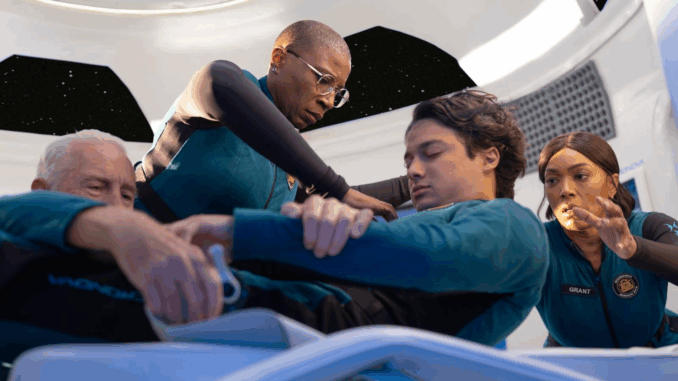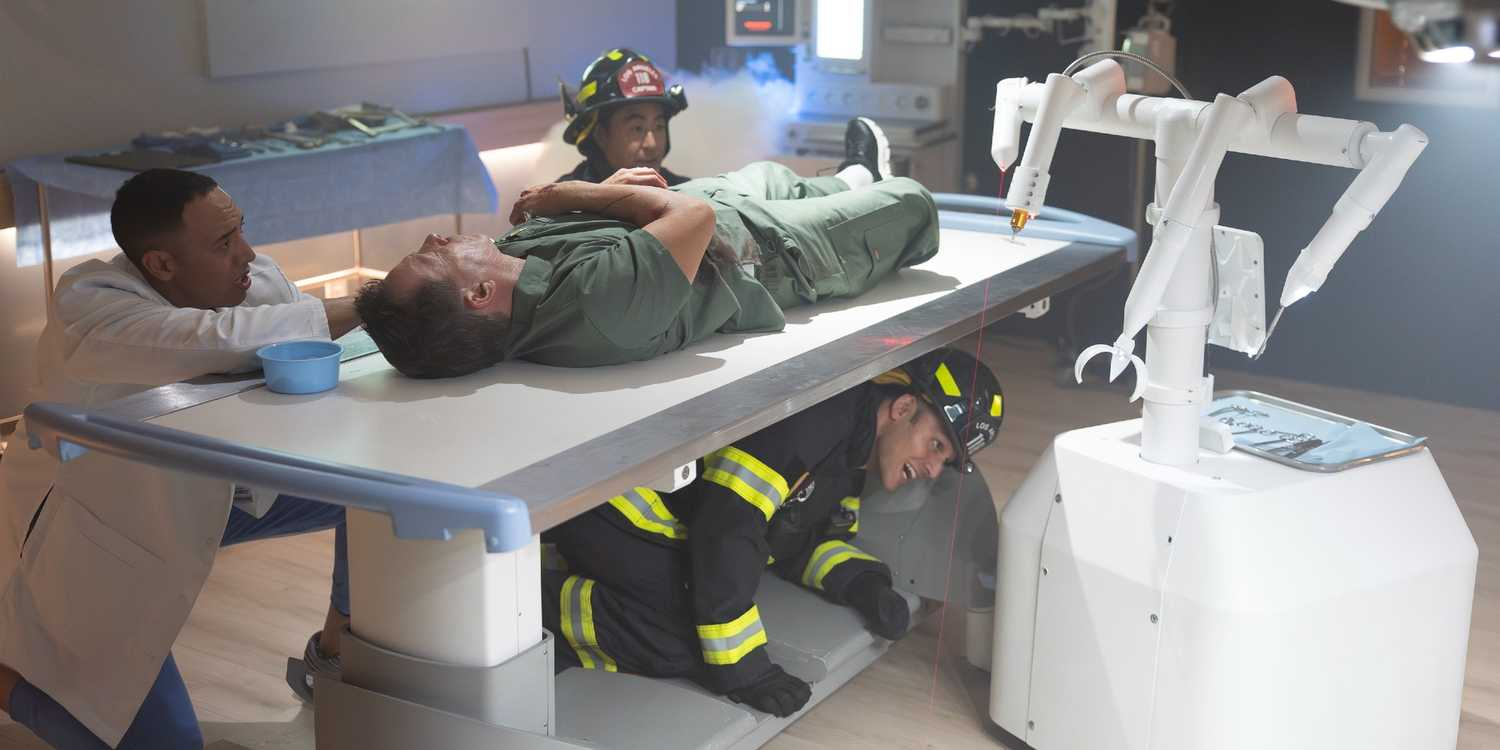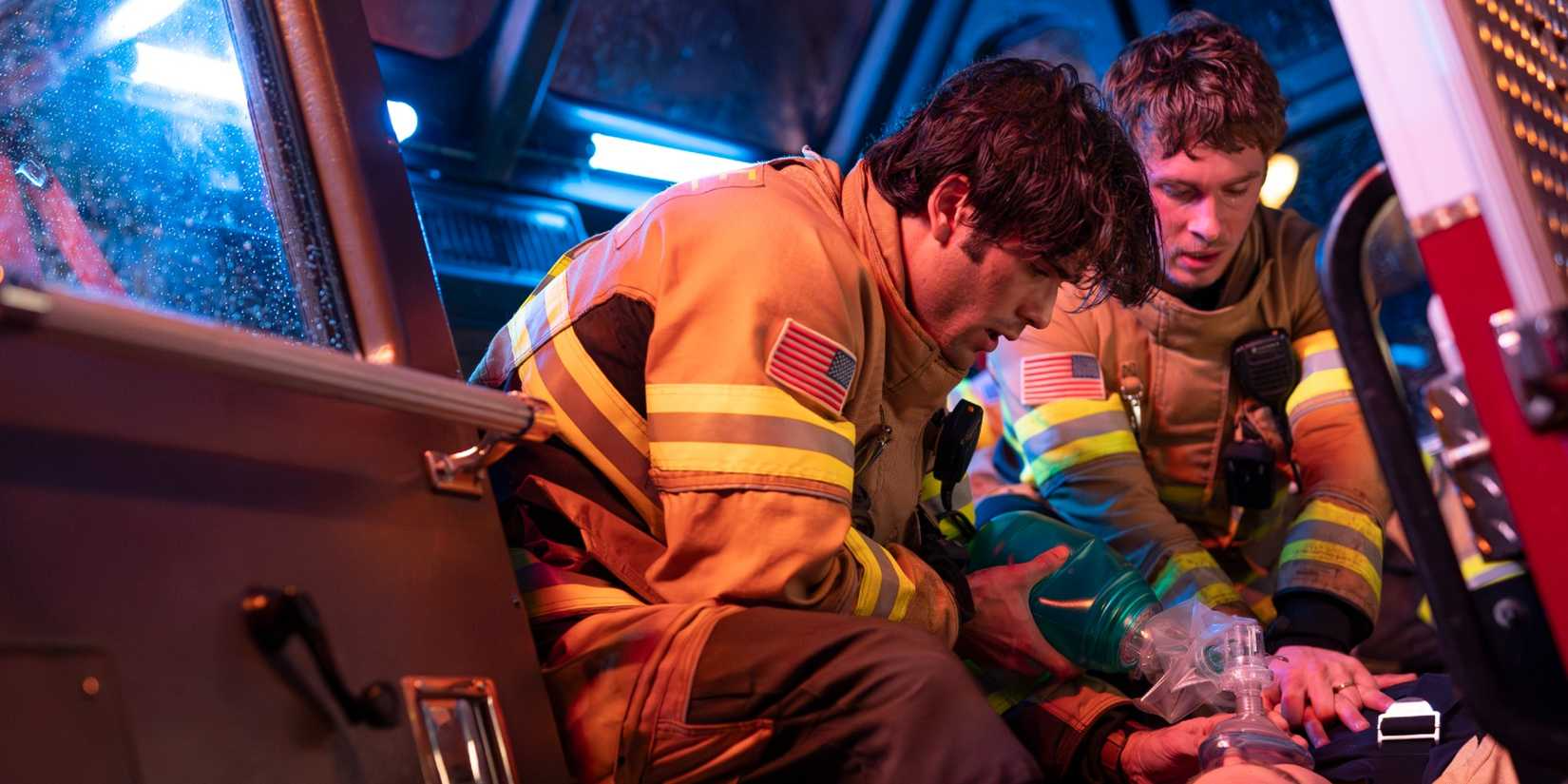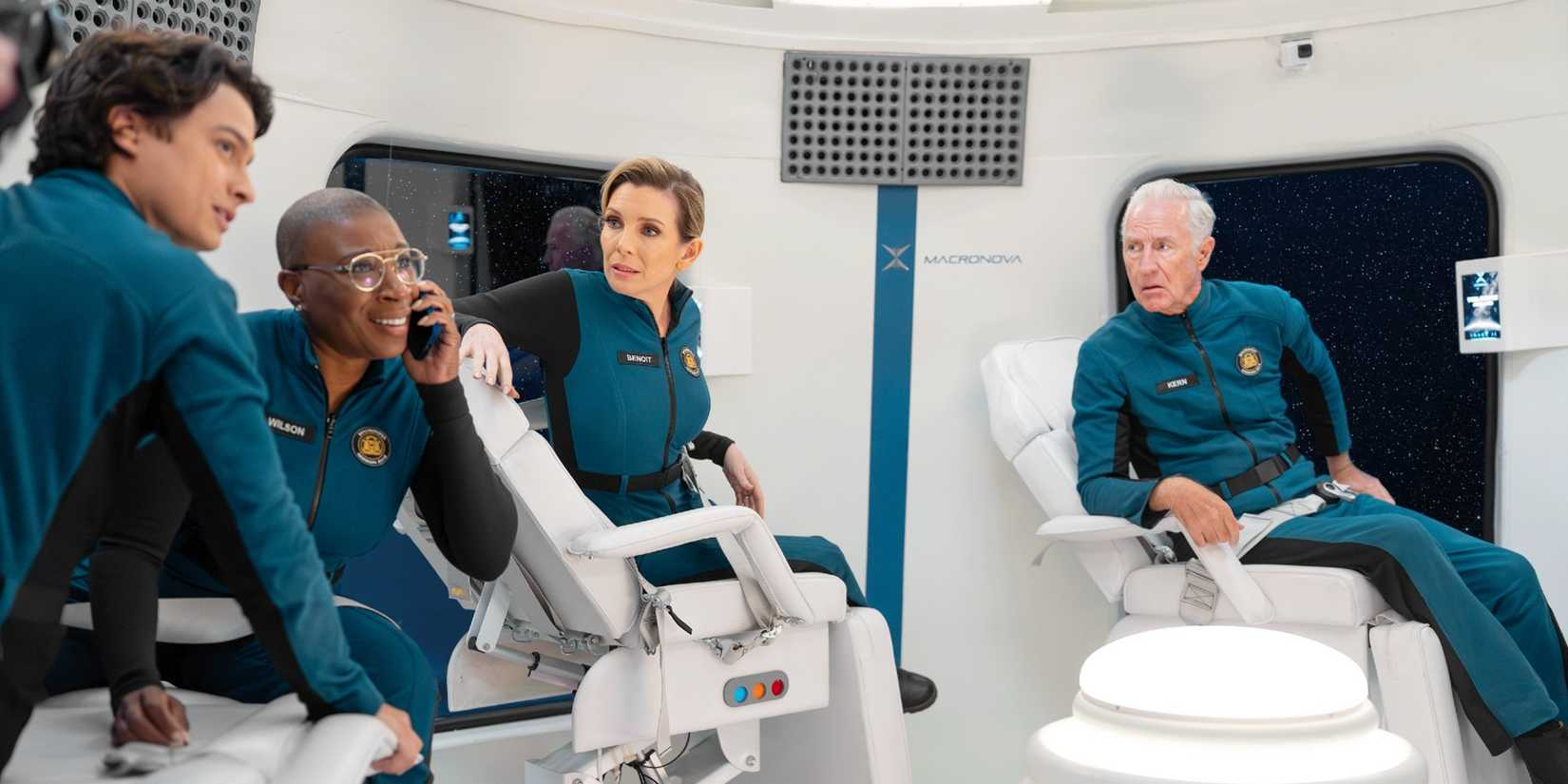
The 9-1-1 universe just got bigger with the arrival of 9-1-1: Nashville, marking the third entry in the franchise. After eight thrilling seasons of 9-1-1 and five of 9-1-1: Lone Star, fans have come to expect a familiar formula: each show follows a team of first responders and the dispatchers who guide them — and every new season opens with a jaw-dropping disaster meant to set the tone.
In 9-1-1’s Season 9 premiere, Hen (Aisha Hinds) and Athena (Angela Bassett) blast off into space for what should’ve been a quick orbit, only to get caught in a deadly geomagnetic storm. Meanwhile, 9-1-1: Nashville kicks off with its own tempest, as the city’s firefighters face a massive storm — and tragedy strikes when Fire Captain Don Hart (Chris O’Donnell) is hit by lightning.
But despite the high stakes on paper, neither series delivers the emotional punch that once defined 9-1-1’s best disaster episodes. The spectacle is there, but the suspense and heart — the human core that made the franchise so powerful — feel noticeably muted.
‘9-1-1’ and ‘9-1-1: Nashville’ Put Spectacle Before Story

After years of perfecting its big-disaster premieres, 9-1-1 seems to have lost sight of what made them work. Season 9 throws Athena and Hen into a geomagnetic storm in space, but after Bobby’s death, the show needed time to breathe, not another over-the-top emergency. With one nonstop crisis after another, the emotional weight that once grounded the chaos now feels missing.
Its spinoff, 9-1-1: Nashville, makes the same mistake. The flashy lightning strike and storm overshadow the characters we barely know. Ironically, the most engaging moment so far isn’t a rescue — it’s when Roxie and Taylor comfort Ryan after his divorce papers arrive. Both shows prove that the 9-1-1 universe is at its best when it slows down and lets the human stories shine through the sirens.
9-1-1: Nashville Pulled the Trigger Too Soon With Its First Big Disaster

9-1-1: Nashville is trying to capture the same magic as the original, but it may have rushed into the action too quickly. The original 9-1-1 didn’t unleash its first major catastrophe — the plane crash in “Worst Day Ever” — until Episode 4, giving audiences time to connect with the characters first. That buildup made the chaos hit harder.
By contrast, Nashville throws viewers straight into a lightning strike and near-death drama in just its second episode. But we barely know Captain Don beyond his job title, so it’s hard to feel invested in his fate. Without the quirky humor, warmth, and camaraderie that made 9-1-1’s early days so effective, Nashville’s high-stakes emergencies feel more flashy than emotional. The show needed to earn its big moments — not rush them.
‘9-1-1’ and ‘9-1-1: Nashville’ Lose Tension With Their Over-the-Top Emergencies

Both 9-1-1 and its new spinoff 9-1-1: Nashville kicked off their seasons with massive disasters, but neither truly feels high-stakes. 9-1-1’s space storyline quickly lost emotional weight after Bobby’s death, while Nashville dove into chaos before viewers had a chance to connect with its characters.
What these shows need isn’t bigger emergencies — it’s stronger character moments. The charm of 9-1-1 has always come from its team’s chemistry, humor, and humanity, not just the spectacle. If Nashville slows down to let audiences actually know its firefighters, and 9-1-1 refocuses on its characters’ emotional lives, both series can find their spark again.
